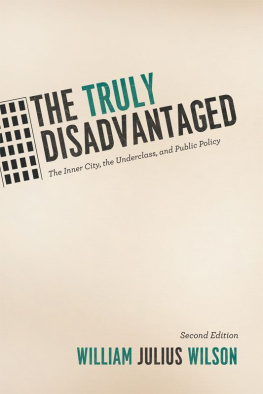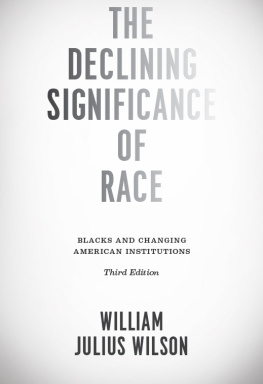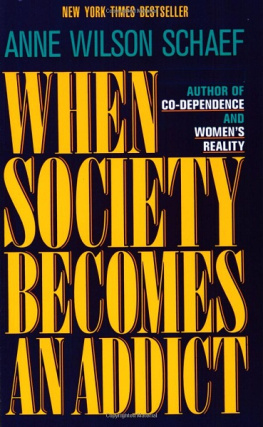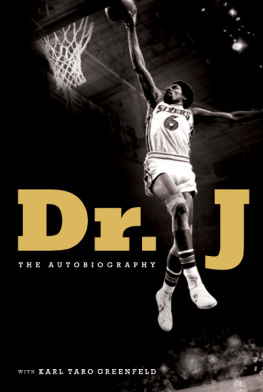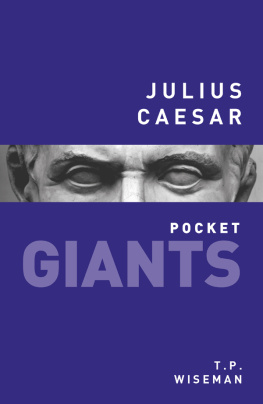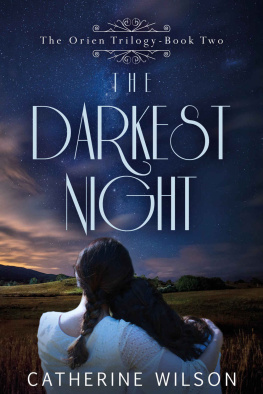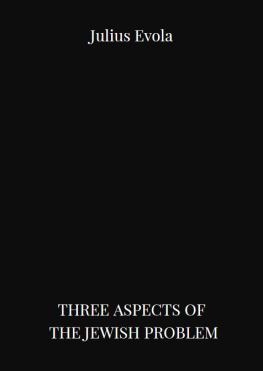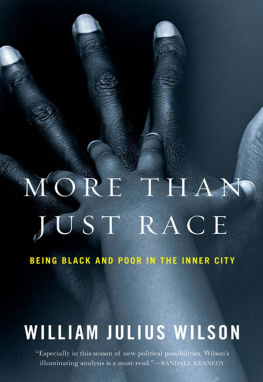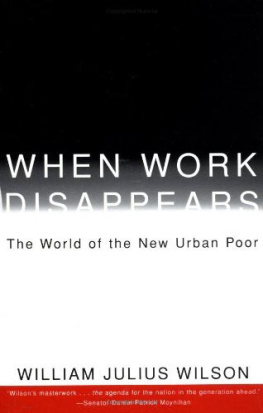Julius Wilson - 1987
Here you can read online Julius Wilson - 1987 full text of the book (entire story) in english for free. Download pdf and epub, get meaning, cover and reviews about this ebook. year: 1987 (2012), publisher: The University of Chicago Press, genre: Politics. Description of the work, (preface) as well as reviews are available. Best literature library LitArk.com created for fans of good reading and offers a wide selection of genres:
Romance novel
Science fiction
Adventure
Detective
Science
History
Home and family
Prose
Art
Politics
Computer
Non-fiction
Religion
Business
Children
Humor
Choose a favorite category and find really read worthwhile books. Enjoy immersion in the world of imagination, feel the emotions of the characters or learn something new for yourself, make an fascinating discovery.
- Book:1987
- Author:
- Publisher:The University of Chicago Press
- Genre:
- Year:1987 (2012)
- Rating:4 / 5
- Favourites:Add to favourites
- Your mark:
- 80
- 1
- 2
- 3
- 4
- 5
1987: summary, description and annotation
We offer to read an annotation, description, summary or preface (depends on what the author of the book "1987" wrote himself). If you haven't found the necessary information about the book — write in the comments, we will try to find it.
1987 — read online for free the complete book (whole text) full work
Below is the text of the book, divided by pages. System saving the place of the last page read, allows you to conveniently read the book "1987" online for free, without having to search again every time where you left off. Put a bookmark, and you can go to the page where you finished reading at any time.
Font size:
Interval:
Bookmark:
The University of Chicago Press, Chicago 60637
The University of Chicago Press, Ltd., London
1987, 2012 by The University of Chicago
All rights reserved. Published 1987.
Second edition 2012
Printed in the United States of America
21 20 19 18 17 16 15 14 13 12 1 2 3 4 5
ISBN-13: 978-0-226-90126-8 (paper)
ISBN-10: 0-226-90126-2 (paper)
ISBN-13: 978-0-226-92465-6 (e-book)
Library of Congress Cataloging-in-Publication Data
Wilson, William J., 1935
The truly disadvantaged: the inner city, the underclass, and public policy / William Julius Wilson. Second edition.
p. cm.
Includes bibliographical references and index.
ISBN-13: 978-0-226-90126-8 (paperback: alkaline paper)
ISBN-10: 0-226-90126-2 (paperback: alkaline paper) 1. Urban poorUnited States. 2. Inner citiesUnited States. 3. Urban policyUnited States. 4. African AmericansEconomic conditions. 5. African AmericansSocial conditions. 6. United StatesRace relations. I. Title.
HV4045.W55 2012
362.50973dc23
2011043241
Portions of this book previously appeared in somewhat different form in Minority Report, edited by Leslie W. Dunbar, published by Pantheon Books in 1984; The New Urban Reality, edited by Paul Peterson, published by The Brookings Institution in 1985; Society, vol. 21 (November/December 1983); Yale Law and Policy Review, vol. 2 (Spring 1984); and the Social Service Review, vol. 57 (December 1985). is a slightly revised version of an article from Fighting Poverty, edited by S. Danziger and D. Weinberger, published in 1986 and used with permission by Harvard University Press, copyright by the Board of Regents of the University of Wisconsin System. The Appendix is reproduced, with permission, from the Annual Review of Sociology, vol. 11. 1985 by Annual Reviews, Inc.
 This paper meets the requirements of ANSI/NISO Z39.48-1992
This paper meets the requirements of ANSI/NISO Z39.48-1992
(Permanence of Paper).
William Julius Wilson
The Truly Disadvantaged
The Inner City, the Underclass, and Public Policy
SECOND EDITION

The University of Chicago Press
Chicago and London
Contents
Preface
In 1978 the University of Chicago Press published my controversial book, The Declining Significance of Race. I had hoped that the major academic contribution of that book would be to explain racial change in America within a macrohistorical-theoretical framework. But there was another contribution I had hoped to makeI wanted to call attention to the worsening condition of the black underclass, in both absolute and relative terms, by relating it to the improving position of the black middle class.
The Declining Significance of Race generated controversy not only within academic quarters but in the popular media as well. At the time of publication, heightened awareness of racial issues had been created because changing social structures altered many traditional patterns of race relations and because the state was inextricably involved in the emerging controversy over affirmative action.
In the initial months following publication of the book, it seemed that critics were so preoccupied with what I had to say about the improving conditions of the black middle class that they virtually ignored my more important arguments about the deteriorating conditions of the black underclass. The view was often expressed that since all blacks are suffering there is no need to single out the black poor.
During the controversy over The Declining Significance of Race I committed myself to doing two things: (1) I would address the problems of the ghetto underclass in a comprehensive analysis; and (2) 1 would spell out, in considerable detail, the policy implications of my work. These two commitments provided direction for the writing of The Truly Disadvantaged. The first commitment grew out of my personal and academic reaction to the early critics almost total preoccupation with my arguments concerning the black middle class. Indeed, it was only after I began writing The Truly Disadvantaged that serious scholars (particularly those working in fields such as urban poverty, social welfare, and public policy) were beginning to focus on my analysis of the underclass in The Declining Significance of Race.
In the second edition of The Declining Significance of Race, published in 1980, I wrote an epilogue in which the policy implications of my work were underlined in sharp relief, but by then the views of many readers of the first edition had already solidified.
If the idea for the The Truly Disadvantaged grew out of controversy over The Declining Significance of Race, does it mean that the former will also generate controversy? It will be controversial. The Truly Disadvantaged challenges liberal orthodoxy in analyzing inner-city problems; discusses in candid terms the social pathologies of the inner city; establishes a case for moving beyond race-specific policies to ameliorate inner-city social conditions to policies that address the broader problems of societal organization, including economic organization; and advances a social democratic public-policy agenda designed to improve the life chances of truly disadvantaged groups such as the ghetto underclass by emphasizing programs to which the more advantaged groups of all races can positively relate.
It should be emphasized, however, that many of the central theoretical arguments of The Truly Disadvantaged were inspired not by the debate over The Declining Significance of Race but by my travels to inner-city neighborhoods in the city of Chicago in the past several years and by my perception of social changes, including changes in the class structure, in inner-city neighborhoods. The essays in of The Truly Disadvantaged describe these changes in some detail and address the question of why the social conditions of the ghetto underclass have deteriorated so rapidly in recent years.
presents regional data on this index and relates these data to regional figures on female headship. This chapter also considers the relationship between structural changes in the regional economy and both the male marriageable pool index and female headship.
The essays in integrates and summarizes the basic arguments in the preceding chapters and then recommends a comprehensive public policy agenda to improve the life chances of truly disadvantaged groups such as the ghetto underclass. An important feature of this agenda is that it includes programs to attract and sustain the support of the more advantaged groups of all races and class backgrounds.
In preparing this book I benefited greatly from an award from the Ford Foundation to support the writing of humanistic nonfiction books on major social issues in contemporary society and a grant from the Spencer Foundation. Both of these awards allowed me to reduce my teaching load during the 198283 academic year to devote more time to writing, and to hire two marvelous research assistants, Robert Aponte and Kathryn Neckerman, who helped to collect and analyze data for this study. Also, Neckerman coauthored ).
I also benefited from a year in residence as a fellow at the Center for the Study of Behavioral Sciences at Stanford University during the 198182 academic year. There I did a good deal of the initial reading for this study and, partly through participation in a series of stimulating seminars at the center with some of the leading social policy experts in the country, developed ideas about economic and social welfare policy.
Finally, I benefited from the helpful comments of Bernard Gifford (dean of the School of Education, University of California, Berkeley) and Ira Katznelson (dean of the Graduate Faculties, New School for Social Research). Gifford and Katznelson read the first draft of this manuscript and provided detailed written criticisms and suggestions that were very helpful in the revisions of the final draft.
Next pageFont size:
Interval:
Bookmark:
Similar books «1987»
Look at similar books to 1987. We have selected literature similar in name and meaning in the hope of providing readers with more options to find new, interesting, not yet read works.
Discussion, reviews of the book 1987 and just readers' own opinions. Leave your comments, write what you think about the work, its meaning or the main characters. Specify what exactly you liked and what you didn't like, and why you think so.

